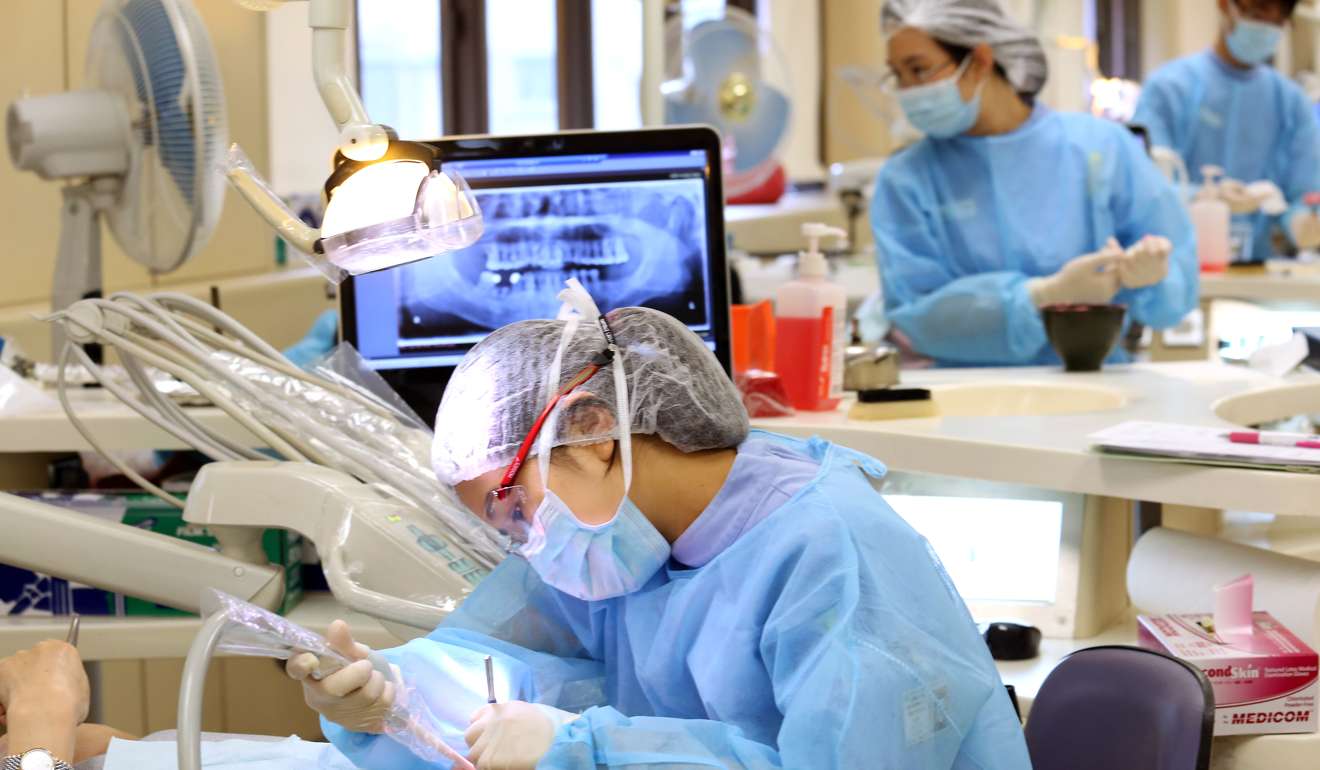
Access to dental care set to be widened for Hong Kong’s elderly as lower age for subsidy scheme proposed
Task force puts forward another lowering of minimum age, to 70, but lack of services still a barrier
More elderly residents in Hong Kong could gain access to vital dental care services with the age limit for a government subsidy scheme set to be lowered even further in the coming months.
An additional 24,600 senior citizens benefited from the Commission on Poverty’s decision to lower the age requirement for the Community Care Fund scheme last September, from 80 to 75.
Fund task force chairman, Dr Law Chi-kwong, said during a radio programme on Wednesday that another adjustment to the age criteria, from 75 to 70, was in the works.
But even with the age requirement lowered, the capacity of Hong Kong dental services is still a limiting factor.
“Other than NGO dental clinics, ‘community care dentists’ are only charging the government up to cost recovery,” he said. “So the capacity to provide [more] services is quite limited.”
The Labour Party’s Dr Fernando Cheung Chiu-hung welcomed the move but echoed concerns over a severe lack of available services and long-term planning for elderly dental care. He said the shortfall meant many were forced to queue up at government clinics from as early as 5am just to ease a toothache.

Out of 39 government dental clinics across the city – which provide services to current and retired civil servants and their dependents – just 11 offer emergency services to the public.
“It’s basically like the crumbs trickling down,” Cheung said, adding that most elderly residents could not afford expensive dental care in the private sector.
Most of these government clinics offer no more than two sessions per week to the general public. And the only services provided for free are pain relief and tooth removal.

As a result, Cheung said elderly folk were waking up at dawn just to beat the crowds and see a dentist.
“Elderly people aren’t really able to enjoy a lot of things due to their physical condition, so it’s really just eating. If they can’t do that because of their teeth, then this will greatly impact their quality of life.”
Despite Hong Kong’s ageing population, there are just two dentists for every 1,000 of the city’s elderly residents. In comparison, Japan has more than three, South Korea more than four and Australia more than five.
Law said the problem was a shortage in dental services across the entire city, which created an imbalance in demand and supply.
“Dental care servicing in Hong Kong has never been subject to any serious review or any long-term planning,” he said. “This is something that needs to be thought about.”
The city’s education institutions only produce about 50 dentists per year and the government just recently increased the number of publicly funded degree places to 70. The first batch will not graduate until 2022.
This is not something that can be solved in a few years
“Even if those 11 [government] clinics are turned into 18 [one for each district], the government won’t even be able to hire any dentists. This is not something that can be solved in a few years,” Law said.
The poverty rate among the city’s elderly is about 30 per cent, more than double that of Hong Kong’s overall figure. In that same demographic, problems such as tooth loss, untreated tooth decay and periodontal disease are more prevalent due to the lack of check-ups while younger.
According to the Department of Health’s 2011 oral health survey, about 40 per cent of those aged 65 to 74 have fewer than 20 teeth remaining and about 5.5 per cent have none.

